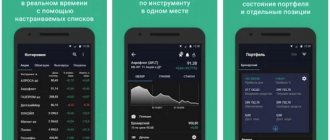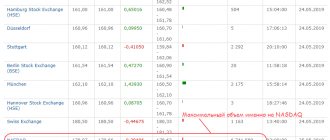Hello, dear readers! You probably already know a lot about investing in cryptocurrency, in particular, that you can make good money on new promising tokens. However, not everyone knows how to get the maximum benefit from a coin even at the moment of its appearance. In the world of finance over the past couple of years, there has been more and more talk about ICO. Literally the acronym means initial coin offering. And the first thing that novice investors want to know about ICO is what it is in simple words?
In this article, I will talk about the intricacies of an initial token offering and explain how to navigate the many projects that are conducting it. Investors have been profiting from participation in ICOs since 2013 . Do you want to join them? Then read on!
What are digital tokens in the cryptocurrency market?
Recently, you can increasingly come across the term ICO (Initial Coin Offering), which literally translates as “initial coin issue.” At its core, an ICO is a tool for raising capital by involving investors in a startup related to the development/promotion of any technology/platform/service with cryptocurrency. Direct capital raising is carried out through the preliminary sale of tokens at a price set by the organizer.
Digital tokens are virtual “coin substitutes” sold at ICOs. Subsequently, the tokens can be exchanged for new cryptocoins.
In simple words, a cryptocurrency ICO is a preliminary sale of cryptocurrency at a price that is expected to increase significantly in the future.
Thus, the company issues a certain number of crypto tokens and then sells them to the target audience, most often for bitcoins or fiat money. As a result, users transfer bitcoins, and in return receive a new cryptocurrency, which in the future will help them get some profit from the startup.
Fundraising for ICOs is carried out using “smart contracts”. In the vast majority of cases, smart contracts generate ERC20 tokens on the Ethereum blockchain. The use of blockchain in the project is not necessary, since its main purpose is the generation and storage of tokens.
I discussed it in more detail in the article: What are Tokens?
Where to find projects: ICO trackers
To find promising blockchain projects, investors use special trackers. These are online platforms where information about startups that are conducting or have already completed an ICO is posted. With the help of such resources, crypto enthusiasts can easily track startups and choose the most interesting options to participate.
The trackers contain a minimum set of information about the project: the name and logo of the company, the start date of the crowdsale. Additional information may include the amount of investment, information about the team, links to social networks, forums, project documentation, including a white paper. By learning this information, investors will be better protected from fraud.
The most popular English-language trackers are:
- Happy Coin Club;
- CoinGecko;
- The Cointelegraph;
- ICO Alert;
- CoinSchedule.
The most famous Russian-language trackers are:
- ICO-tracker;
- Rating ICO;
- Kibers;
- ICO Time;
- ICO-stat.
Blockchain startups actively use trackers to reach their target audience. For startups, this is an additional tool for promoting and attracting the attention of the crypto community.
Types of ICO digital tokens
- Equity tokens represent company shares.
- Utility tokens - reflect some value within the business model of the online platform (reputation, points for certain actions, game currency).
- Asset-backed tokens are digital obligations for real goods or services (kilograms of carrots, an hour of work for a builder, etc.).
Application tokens (appcoins)
The main purpose of application tokens is to pay for internal network services of a specific project. Their presence allows the user to gain access to additional functions and opportunities in the decentralized network.
It should be noted that such tokens and cryptocurrency are two different things. For example, users of the Steemit network receive tokens for posting content, popularizing or creating new features. In this case, the token is a referral reward.
In the Bitcoin and Ethereum ecosystem, they can only be obtained through mining. Most of the tokens appear on the network, thus they can be freely purchased, sold and exchanged for other cryptocurrencies. It is also important that their circulation is usually regulated by the main protocol, but unlike digital currencies, not so strictly.
Credit tokens
One of the main functions of electronic tokens is to invest regular money (dollars, euros, yuan, etc.) in new projects that demonstrate a high liquidity ratio.
For example, by purchasing Steem Dollar (SD) credit tokens, you can expect a return of 10% per annum on the total loan amount. Moreover, payments, according to the conditions, are made in SD, despite the fact that user payments are mainly made in fiat money.
Thus, the Steemit blockchain system receives funds for its development, and users receive income. For such a business model, the availability of electronic tokens and their circulation is a defining moment.
Share tokens
As you can see in the section on ICO projects, almost every day we learn about new startups that attract funding by issuing their own tokens, which are purchased by anyone who is interested in the project.
A logical question arises: why not create a new cryptocurrency right away? The fact is that startup initiators do not have the opportunity to wait a certain time for a new digital currency to strengthen its position in the market.
Despite the fact that this model is quite new and not fully regulated, it has been able to demonstrate its effectiveness, which is constantly increasing its popularity. In this case, tokens can be considered as an analogue of shares, but do not provide subsequent income to their owners.
In rare cases, electronic tokens provide a stake in the business and voting rights to holders when considering project development initiatives.
Sites for searching ICOs
It is better to obtain information about ICOs from verified resources specially created for this purpose . Trying to directly find a page on the Internet for a project you are interested in may lead to a phishing site. The most popular search resources are briefly described below.
Bitcointalk (BTT)
The main information portal in the world of cryptocurrency is the Bitcoinlalk . The Announcements (Altcoins) branch exists specifically for announcing ICOs . This is where new ICOs often appear for the first time. The announcement post is prepared by the startup team itself, and Bitcointalk managers are already working with feedback from portal users.
ICOgens
The site has a standard ICO calendar divided into active/upcoming/completed ICOs. You can also view the list of ICOs by category.
If you go to any project of interest, in addition to the description, you can see its rating .
Icodrops
site interface is clear and simple. Similar to Icogens, but better structured and overall cleaner.
There is no option to view ICOs by category. The main page also displays ICO listings. Full lists are viewed in the relevant sections. About has a FAQ for beginners .
ICOBazaar
Not just a service for searching for ICOs, but a good information and analytical resource . Here, in addition to a well-structured description of the ICO, you will find:
- Links to many publications about the world of cryptocurrency and the latest news;
- Information about ICO and blockchain experts;
- Convenient ICO calendar with the ability to sort and apply various filters;
- The list immediately reflects the rating of ICO projects .
Before participating in any ICO, watch a detailed video review with step-by-step instructions :
Pre-sale of tokens within the ICO
An ICO or public token sale stage is launched so that a company can receive money in the tokens of their system from independent investors. In this case, the token acts as a contract under which the owner of the tokens will be provided with something in return - a product or service.
An investor buys, for cryptocurrency or regular money, the right to receive predetermined goods/services/bonuses within a specific company. Which ones exactly depends on what the startup offers.
The dynamics of development and economic strategy associated with the sale of tokens are growing every day. Cryptocurrency networks can easily combine different types of tokens. In this matter, legislation plays a big role, or, more precisely, its absence in relation to the issue and sale of tokens.
This type of activity does not yet fall under any jurisdiction. Even the process of selling tokens in some sense contradicts the main Bitcoin protocol, but it is still popular because significantly expands the possibilities for the fruitful development of a decentralized payment system.
This is especially useful at the initial stage of a new startup or project. Many players in the cryptocurrency market consider all the risks associated with tokens to be completely justified, given that the original structure of cryptocurrencies has long lacked flexibility.
ICO statistics 2013—2018
As I already said, ICO has been around for five years. Gradually, more and more countries are involved :
And the areas of activity of startups are becoming more and more diverse:
The volume of attracted investments is also growing. Let's see how ICOs have developed from the very beginning.
2013
Historically, this is the year the ICO began. At that time, the term ICO did not even exist. The pioneer was the Mastercoin , now Omnilayer . $500,000 was collected using Bitcoin .
2014
There were only two ICOs. Storjcoin X project raised $461,802 in August. Ethereum was held , which raised $15,571,000 and made it possible to implement many subsequent ICOs based on its platform.
2015
ICOs are still not as popular as they are today, however, inspired by the achievements of Ethereum, three projects have raised considerable amounts of money:
- Bitcrystals — $200 000;
- Augur - $5 300 000;
- Iota — $584 000.
2016
We can say that it was in 2016 that the ICO boom began. A total of $78,638,000 raised . Three leading projects:
- Waves — $16 010 000;
- Iconomi — $10 680 000;
- Golem — $8 600 000.
2017
ICO continues to gain momentum. The total amount exceeded a billion . , $2,445,711,218 were raised in a year . Top projects:
- FileCoin — $257 000 000;
- Tezos — $232 000 000;
- Paragon Coin — $183 000 000.
2018
Although it is still too early to sum up 2021, the results are already very impressive. In total, $6,198,777,656 has been raised so far . Leading in 2021:
- EOS — $4 100 000 000;
- Telegram — $850 000 000;
- tZERO — $250 000 000.
Looking at these numbers, there is no doubt that the popularity of investing in tokens will continue to grow, despite the small percentage of successful startups among the general public.
The first five years became a kind of development milestone for ICOs. There have already been the first serious “rake”, for example, the infamous project The DAO . The goal of the project was really cool - the organizers proposed a decentralized investment management system that would be managed by the investors themselves. Initially, a huge amount was collected - $168,000,000. But the attacker found a vulnerability in the code of the DAO smart contract , and was able to transfer more than $50,000,000 to himself on absolutely legal grounds. Of course, after this the DAO token – the XBT – depreciated in value on the exchange.
During this time, the cryptocurrency community has learned to identify and minimize the risks of investing in ICOs, and many tools have been created for selecting “good” projects.
Where and how to buy cryptocurrency tokens:
Tokens are traded on various cryptocurrency exchanges and you can buy them there. They are pegged to the euro and thus can be purchased with money. And then convert the cryptocurrency itself into real euros.
The very type of token dictates its distribution mechanism (crowdsale).
You can also purchase coins (cryptocurrency coins) from the miners themselves.
Exchanges
To purchase tokens, you can use any exchanges and exchangers. It is only important to choose a proven resource. If you don't want to trust sites, you can use the personal transactions feature. In this case, you will need to set the price of tokens directly with the seller. In basic terms, token trading is no different from similar processes with digital currency.
You can often find resources that provide the ability to purchase tokens using traditional payment systems. If a token gets listed on the exchange, this is already a sign that it has been recognized by the public, in fact, as it confirms the prospects of the project itself. If you yourself cannot decide whether a particular project will be successful, pay attention to specialized resources that regularly monitor ICO projects, updating information about them and giving advice to beginners.
Related articles: Review of cryptocurrency exchanges How to buy/exchange cryptocurrency
ICO
The most important stage in purchasing tokens from new startups at ICO is the competent choice of a project that will bring tangible profits to its owners and investors in the future. You can view upcoming ICO projects on our website.
When choosing an ICO, you need to carefully study the idea, find out who the organizer is, and whether these people have expertise in the field of cryptocurrencies and related technologies. It is extremely important to analyze how viable and applicable the project that the organizers want to implement is. Otherwise, the chosen project may turn out to be unprofitable, which will only lead to a completely meaningless loss of funds.
To purchase tokens within the ICO you must:
- choose a suitable startup;
- go to the official website of the project;
- go to the “Join the sale” section;
- select the required currency; read the license agreement;
- enter the address of the cryptocurrency wallet from which payment will be made;
- indicate the address to which the payment will be made;
- using a cryptocurrency wallet, transfer currency to the recipient’s address to purchase tokens;
- wait for the transaction to complete; check your wallet account.
Which exchange to buy EOS tokens on?
You can purchase EOS tokens on many exchanges, including:
- Yobit - Yobit Review;
- Bitfinex - Review of the Bitfinex exchange;
- Kraken - Kraken Review;
- HitBTC - Review of the HitBTC cryptocurrency exchange.
Experts strongly recommend that before purchasing tokens, you analyze the dynamics of changes in the EOS exchange rate, otherwise the purchase may turn out to be completely unprofitable.
Stages of ICO
Private Sale
The purpose of this stage is to raise funds for the official launch of the ICO . reliable investors at the very beginning , offering tokens at the lowest possible price.
At this stage, organizers usually:
- They make a presentation of the project , as a rule, on the official website;
- Create a white paper with a road map ;
- Developing a legislative framework;
- Draw up a plan for issuing tokens ;
- They are looking for investors and other partners to develop the project.
During a private sale, you can attract key investors , so-called business angels and anchor investors . Angels support the project in the early stages , and not necessarily only financially. Professional advice from an expert in any field or solving technical problems also helps the project get off the ground. The anchor investor is the first to invest in the project an amount large enough for the ICO to instill confidence in other investors in the future.
Pre-ICO or Pre-Sale (preliminary sale)
At this stage, tokens are sold at a price lower than during the ICO itself. During the stage, the main goal is to prepare for the active promotion of the project . To do this, the organizers do the following:
- Issue of tokens;
- Analysis of the interest of the potential target audience of the project;
- Creating favorable conditions for promoting the project, for example, news feeds on social networks.
CrowdSale (crowdsale)
Direct ICO. Funds at this stage are invested through the official website of the project. The stage involves conducting large-scale advertising campaigns and selling the main volume of tokens (or the entire volume in case of a limited release). In the future, it is possible that tokens will appear on exchanges. But this will happen only if the project is successfully implemented and a large amount of investment is attracted.
In the five years since the launch of the first ICO, many successful campaigns . I will tell you about several of them, based not only on the amounts that were collected, but also on the uniqueness and promise of the idea itself.
What to do with tokens after ICO?
The growing interest in ICOs is explained by truly unique opportunities for startups, so today the benefits of issuing tokens are known to everyone. In this regard, a logical question arises: why should investors buy tokens and what to do with them after the ICO? The main reasons that can be explained for the purchase of tokens are:
- the opportunity to receive company services at a lower cost;
- personal interest of the investor in a specific project;
- and also the most common reason is obtaining financial benefits due to the resale of tokens in the future.
Regarding the possibility of receiving any services from the company, we immediately note that most often this represents the purchase of disk space, as well as the opportunity to increase the bandwidth of the channel (this is the service, for example, that investors of the Storjcoin X project receive).
The investor’s personal interest in the project can be explained by the desire to contribute to the development of some area, to participate in the creation of something useful for society. Purchasing tokens of a promising project opens up broad prospects for their profitable resale in the future (if, of course, their value increases) and generating income.
In order to better understand the opportunities that are available to token owners after the ICO, we list their main functions.
As you know, tokens can: be a reward for miners, act as a fee for using a certain system, represent a share in a project, or be a digital asset.
In addition, tokens can serve as a means of accounting and be used to prevent attacks. And, of course, we must not forget about one of their main functions: tokens also often act as currency and represent a means of payment between project participants.
Cool foreign ICOs
Brave
A future browser project based on Ethereum smart contracts. Brave offered users to get paid for viewing ads . Sounds unreal, doesn't it? It works like this:
- The advertiser paid for the video;
- Users viewed it in the browser and received rewards along with the development team and investors of the project.
In addition, Brave is characterized by high page loading speed and economical battery consumption on the smartphone. The project currency is Basic Attention Token (BAT) . The team managed to raise $36,000,000 in just a few minutes .
Tezos
One of the competitors of the blockchain is Ethereum. A special feature of the Tezos platform is the rejection of hard forks (drastic changes in the blockchain program code). Developers have the opportunity to propose changes to the protocol. And token holders, in turn, have the opportunity to accept or reject the offer. If the changes are beneficial to the majority of currency owners, the developers will receive compensation for their work. In my opinion, this is a fairly fair policy for a decentralized network.
In addition, Tezos uses a different verification algorithm , in which not all blocks of the network are involved, but only certain ones. This promises to significantly improve transaction speeds. The project currency is Tezos (TXZ) . During the ICO, $232,000,000 was collected in just two weeks . Despite such a successful ICO, the launch of the project was delayed for a long time. It took the team about two years to launch the beta version .
Status
Quite an interesting project of a decentralized messenger for Android and iOS, which is called an analogue of Telegram . It is based on the same smart contracts and Ethereum blockchain. Status is open source and messages are processed directly by the blockchain network.
Here are some features of the messenger:
- Availability of a decentralized crypto exchange;
- Application for concluding smart contracts;
- The opportunity to participate in the ICO with just a couple of clicks.
The project currency is Status (SNT) $102,000,000 was collected .
How to make money on cryptocurrency tokens?
To try to make money on cryptocurrency tokens, you first need to buy or receive free tokens of the most promising project, and from the moment they enter the exchange, sell them profitably or receive interest on their ownership.
In this case, the principle is very similar to ordinary shares, but the indisputable advantage of tokens is their rapid rise in price after entering the stock exchange. While the shares of well-known largest companies remain at the same level for quite a long time, tokens can rise in price tenfold in just a couple of hours.
It is important to remember that ICO (Initial Coin Offerings) is an initial offering of a new coin with the goal of creating a new cryptocurrency.
These tokens are sold to raise funds for technical development before a new cryptocurrency is released. An ICO is somewhat similar to an IPO (initial public offering of shares of a company), but differs in that purchasing tokens does not give ownership rights in the company that is developing a new currency.
In addition, you need to understand that ICO projects do not always take off, and you always need to be prepared for this.
Results
I can say with confidence that the emergence of ICOs a positive impact on our lives . It has become much easier to create, implement and develop innovations, since a new mechanism for raising funds . There is no lengthy paperwork, no initial capital is needed. The fact that anyone can be an investor fuels the interest of people around the world in new technologies. This gradually improves the overall quality of life.
Despite all the risks, the almost complete freedom of the world of ICO investments seems to be the standard of democracy. But this is only before the first encounter with fraud. At the moment, mechanisms for monitoring and regulating ICOs are still in development . I only hope that regulation of ICOs will not make them less accessible.
This concludes my guide to the world of ICOs. Is it worth investing in such startups? Yes. But it is important to remember that even in the case of ideal initial conditions, nothing gives a 100% guarantee of profit . Investing in an ICO is always risky . Anything can happen to a project. You need to carefully study and analyze the market, pay attention to expert statements, and use cryptocurrency news aggregators.
Be sure to subscribe to my blog so you don't miss new articles about cryptocurrency . Good luck!
If you find an error in the text, please select a piece of text and press Ctrl+Enter. Thanks for helping my blog get better!
What is asset tokenization?
Tokenization is the process of transforming the accounting and management of assets, in which each asset is represented as a digital token.
The essence of tokenization is to create digital analogues for real values in order to quickly and safely work with them. For example, the owner of a bakery creates an electronic accounting system in which he issues digital obligations for baked goods - tokens.
Having a fairly good reputation, the owner of a bakery can pre-sell buns by selling tokens on trading platforms on the Internet. In this case, any token owner can come to the bakery and exchange one token for one loaf.
How it all began
The idea of tokenizing business projects did not appear yesterday.
Centuries ago, merchants minted tokens to finance trading expeditions. If the venture was successful, token holders received scarce goods for personal use or resale. But if the expedition failed (for example, the ship was attacked by pirates), the investment was burned.
During the Industrial Revolution in Britain, entrepreneurs and bankers minted their own coins to pay employees and partners.
Tokens have returned to the modern financial world thanks to blockchain. Essentially, the first token is Bitcoin. The infrastructure that is necessary for its operation is maintained by users in a decentralized manner. As a reward, they receive coins that can be sold on an exchange or used as a means of payment.
How is a token different from a cryptocurrency?
What is cryptocurrency? This is a unit of account in blockchain technology, where mining is used - the process of issuing (putting into circulation) cryptocurrency. It is used for sales, transaction fees, and is a store of value. Blockchain technology is the basis for the functioning of electronic money, the Bitcoin cryptocurrency and its similar coins.
I already wrote about this in the article: What is cryptocurrency?
Tokens – what are they? They represent a contract, receipt, promissory note with an obligation to provide the person who owns them with a service or product that is determined in advance. Their emission is carried out by a legal entity or individual who initiates their release, unlike cryptocurrency.
Transaction processing and acceptance can also be done centrally, with the organization controlling each server.
The cost of a token can be formed both from supply and demand, as well as from the rules of issue, reward, or linking to an external asset.
Earning money without investments on bounty campaigns
I have already mentioned in this article the bounty - a reward for contribution to the development of a startup. Most often this means helping the project promote through social networks. For you, I have step-by-step instructions on how to make money on bounty. Read and receive tokens without financial investments ! The article describes in detail where to look for information about bounty campaigns, so I will talk about this briefly below.
Places to Find Bounty Programs
Bitcointalk
Experienced bounty hunters look for programs primarily here. The forum has English and Russian branches. There is also a topic about bounty campaigns , there is a lot of useful information, including for beginners.
There is an opinion that a “normal” bounty can only be found on bitcointalk. However, there are other resources called bounty trackers.
BountyHive
A fairly well-known platform for searching for bounty programs and participating in them. The site is not Russified, but the interface is clear. You can take part in all active campaigns at once, if you want - there are no restrictions on the number of projects . There is no need for reports, the system will automatically check the completion of all tasks.
BountyhunterClub
Russian-language platform , quite reliable. Applications for bounty campaigns are carefully assessed by Bountyhunter’s expert team, and then additional selection by voting by all platform participants.
IcoReward
The tracker is available in English, but is easy to use. There are few bounty companies themselves, but the available programs have many types of work for a reward.
Where to store tokens?
In the transfer and storage processes, tokens are similar to other cryptocurrencies.
For this purpose, special wallet applications are used (online, desktop, mobile), which implement the storage and processing of keys, as well as the formation and signing of transactions. Typically, these applications are part of the tokenization platform infrastructure. It is also possible to store tokens on exchanges that support a specific cryptocurrency, but this is the least reliable option and is best avoided. Since there is always a risk of government intervention, which can lead to a complete stop of trading on a particular exchange and freezing of user accounts (disabling access to the account).
Bancor
The owners of the Bancor project presented to the market a platform developed on the basis of Ethereum technology, which allows the exchange of ERC20 standard cryptotokens in a decentralized mode. For one ETH, a reward of 100 BNT (Bancor tokens) was offered.
The token was listed on crypto exchanges on June 18; at the opening of trading, its value was $13.74. However, already on June 22, the cost of one BNT at the time of closing the exchange dropped to $4.19, and by the time of writing, to $1.81. The token capitalization is $78.4 million.
In addition, for one BNT you can get 0.00611228 ETH on the exchange. So, for investing one ETH, the investor received 100 BNT, which can now be sold on the exchange only for 0.611228 ETH.
What are the benefits of tokenization?
- Speeds up trading processes, since there is no need to move real assets and prepare documents for property rights;
- Increases the security of storage and transmission by recording transactions based on blockchain technology;
- Removes the need to trust intermediaries, since their participation can be described at the smart contract level or they can be excluded from the chain;
- Increases the functionality of the infrastructure, expands the capabilities of the platform by connecting additional modules (multi-level authentication, creation of invoices, regular payments, replenishment cards);
- Improves usability because many of the platform's features can be integrated into the mobile app's user interface.
Attracting investments through ICO
Currently, ICOs are not regulated in any way by law, and it is definitely impossible to say whether it is legal to raise money for your project in this way. As well as calling the transactions being carried out illegal. Tokens are not officially recognized as money, so their purchase and sale are not controlled by law.
However, in the United States there are already attempts to control ICOs - tokens were recently declared securities. In the CIS countries, there have not yet been any official statements about the implementation of new bills regulating Initial Coin Offering. And on the one hand, this is good - any intervention by regulatory authorities will slow down the entire system, limiting opportunities for quick earnings.
On the other hand, ICO attracts scammers who create certain risks for investors.
What are the risks and challenges of tokenization?
- In a system that tokenizes real assets, just like in other payment systems, there is a risk of collateral theft.
- There are also risks that the keys on which the tokens are stored may be stolen by hackers or lost. At the moment, there is no approach to assessing such risks and, accordingly, insuring them.
- Transaction privacy on public blockchains is a topic of intense debate. Decentralization of a system always leads to difficult scaling problems.
Conclusion
Now that you know how ICO tokens differ from each other, you can predict in advance how justified the investment will be . Before buying a coin, decide on the purpose of the purchase: do you want to make money on exchange trading in the future, or just want to support the project? Will you use the coin for its intended purpose or are you planning to exchange it for a more popular cryptocurrency soon? Answering these questions will help you make the right investment decision.
Tell us in the comments what do you think are more useful for the development and popularization of cryptocurrencies: those that bear the attributes of investment assets or those that are used on the platform as an internal currency? And why?
Subscribe to our social networks:
Laws
But what about the law, you rightly object. It seems to exist to protect consumers?
Returning to the Smith + Crown report, circumvention of traditional fundraising rules in the ICO world is considered almost the norm - and this at least partly explains why restrictions on the emergence of new cryptocurrencies may remain an internal problem:
Most ICOs today are marketed as “pre-sold soft tokens”—sort of like early access to an online game for hardcore fans. To circumvent the legal requirements required for any form of securities trading, the organizers of many ICOs use terms like “bulk sale” and “donations” instead of ICO.
Thus, the law in the field of ICOs in the United States is not yet working very effectively.
There is an opinion that the collapse of legal regulation is even good, since this gives the ICO market the opportunity to develop and introduce innovations faster. There is some truth in this, even in technical terms, but the risk that unlucky investors will fall into the power of scammers still remains.
Buyer responsibility and moral hazard remain strong arguments for the lack of legal regulations for ICOs and cryptocurrencies. However, in order for the market to continue to grow and attract much larger capital, more needs to be done.











